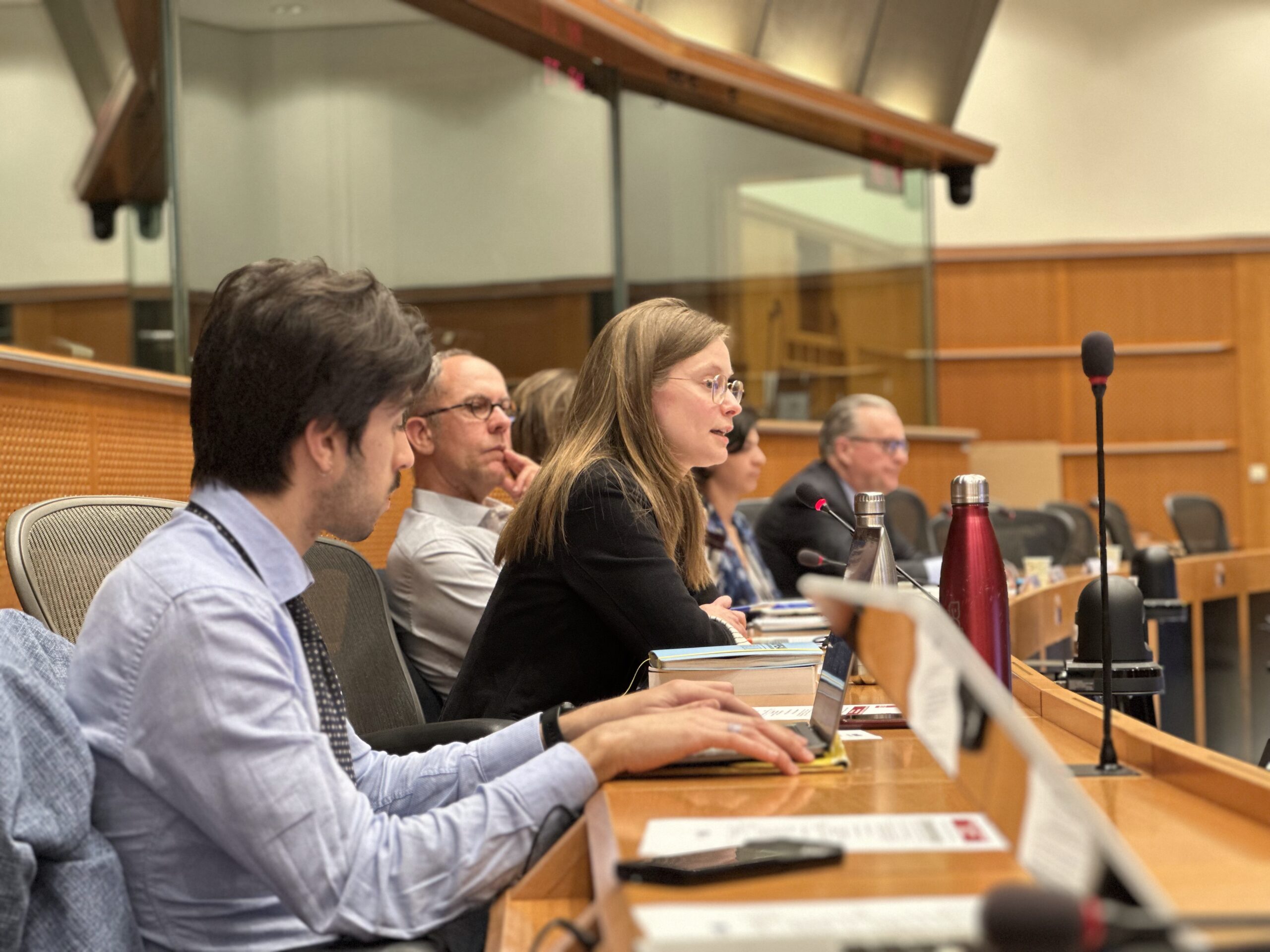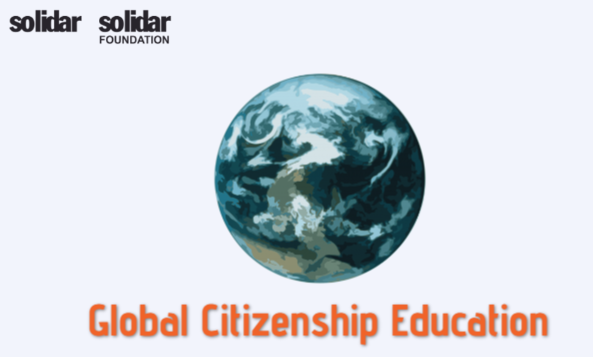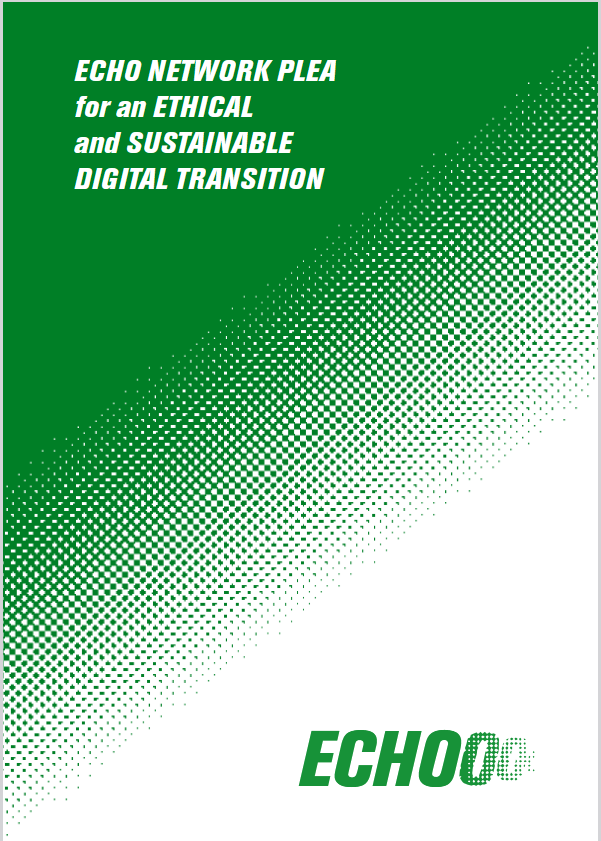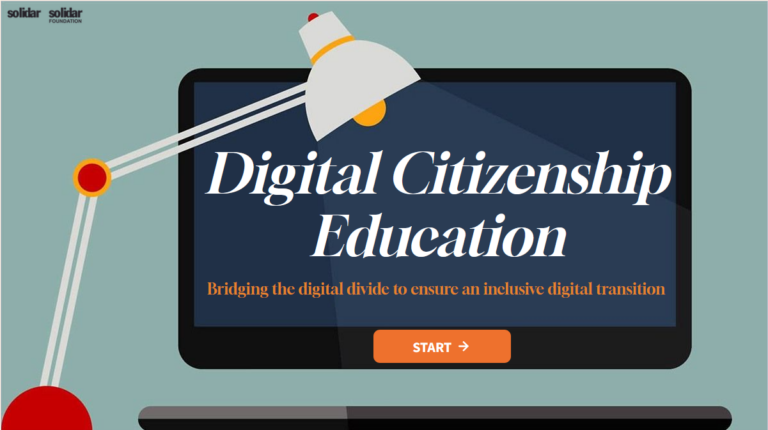Breaking Barriers: Global Citizenship Education for Inclusive Participation

On 13th May 2025, SOLIDAR Foundation organised a high-level policy roundtable at the European Parliament under the title “Breaking Barriers: Global Citizenship Education (GCE) for Inclusive Participation”.
This event gathered over 30 in-person and online participants, including MEP Aodhán Ó Ríordáin, representatives from the European Commission, civil society organisations, and education practitioners to reflect on the role of GCE in promoting democratic participation and addressing deepening social inequalities across Europe.
The roundtable opened with welcoming remarks by Elisa Gambardella, Education and Lifelong Learning Coordinator at SOLIDAR Foundation, who emphasised the urgency of defending democratic values in the face of growing populism, social fragmentation, and disinformation.
This was followed by a powerful keynote from MEP Aodhán Ó Ríordáin (S&D Group), who did not shy away from addressing the current political climate:
“In these dark times, when the far-right fuels hate by creating enemies, those of us who believe in the liberating power of education must stand up. We cannot retreat into silence; we must actively reinforce our values of democracy, freedom, and solidarity.”
Ó Ríordáin’s message set the tone for the afternoon: education is not a neutral space but a political one. It is through education that we shape resilient, critical, and empowered citizens.
Achievements of the 2023–2025 Policy Cycle
The first session, moderated by Alexandra Matthys (SOLIDAR Foundation), provided an in-depth look at the achievements of the Foundation’s 2023–2025 Policy Cycle on Global Citizenship Education, and the SOLIDAR Network’s work on GCE that preceded the Policy Cycle.
Key milestones included:
- The 2024 GCE Campaign linked to the European Parliament elections, highlighting the importance of GCE in closing democratic participation gaps, particularly for underrepresented groups.
- The increased focus on the digital dimension of GCE, namely Digital Citizenship Education (DCE), recognising the growing role of media literacy and digital citizenship education in combating misinformation and fostering democratic resilience. The network’s work on the topic is presented in its latest Policy Pill on Digital Citizenship Education.
The discussion was enriched by testimonies from SOLIDAR Foundation members working on these topics, sharing their experience and best practices:
- Lana Jurman (Centre for Peace Studies, Croatia) shared CPS’ experience contributing to the CLL Monitor.
One of the most interesting findings surfacing from this experience is what Lana called the “GCE Paradox” students perform relatively well in civic competences despite lacking systemic support for GCE. She acknowledged multiple challenges in influencing decision-makers and sustaining momentum with limited resources.
- Jillian Simpson (WEA, UK) shared in line with SOLIDAR Foundation’s work on Digital Citizenship Education, the development of WEA’s Disinformation Course, created in response to the growing spread of disinformation online, a trend that disproportionately affects communities with limited access to formal education. The course supports adult learners in developing critical thinking skills and digital literacy connecting historical injustices, such as the Hillsborough disaster, to broader themes of trust, power, and truth.
- Vasiliki Tsekoura (DAFNI KEK, Greece) presented an intergenerational approach to fostering inclusive participation. In the framework of the AKA project, DAFNI KEK worked with adult learners from vulnerable socio-economic backgrounds, many of whom were attending second-chance or evening schools. Through a series of World Café-style workshops, participants explored themes such as equality, solidarity, and active citizenship. A central goal was to build trust in institutions by creating open spaces for dialogue and political engagement.
Policy Roundtable: The Role of GCE in Tackling Inequalities
The second part of the event featured a high-level policy debate exploring the intersection between Global Citizenship Education (GCE) and social inclusion, moderated by Elisa Gambardella (SOLIDAR Foundation).
The panel brought together key institutional and civil society voices:
- Daria Arlavi, Policy Officer, DG EAC, European Commission
- Koen Bois d’Enghien, Policy Officer, DG EMPL, European Commission
- Liam Wegimont, Executive Director, GENE
- Giulia Meschino, Secretary General, EVTA
Civic Engagement as a Cornerstone of Inclusive Education: Opening the discussion, Daria Arlavi (DG EAC) presented the work of the European Education Area (EEA) Working Group on Equality and Values, which supports mutual learning between countries, civil society organisations and other stakeholders on equity, inclusion as well as citizenship education. Daria stressed the importance of inclusive curricula, encouraging civic engagement, identifying and dismantling systemic barriers that affect underrepresented learners, and engaging families and communities to strengthen diversity and inclusion efforts.
Integrating GCE into Vocational Education and Training: From the perspective of employment and social affairs, Koen Bois d’Enghien (DG EMPL) stressed the critical role of Vocational Education and Training (VET) in advancing social inclusion. With over half of upper secondary students in the EU enrolled in VET, he argued that integrating Citizenship Education into these programs is essential to ensure that learners with a vulnerable background are not left behind.
Avoiding Elitism in Global Citizenship Education: Liam Wegimont (GENE) reinforced the foundational principles of GCE as set out in the Dublin Declaration: rights-based, universal, and grounded in solidarity. He cautioned against elitist approaches that limit GCE to privileged contexts or learners, and instead called for inclusive, systemic policies that link local and global perspectives, ensuring that every learner, regardless of background, has access to transformative education.
A Holistic Vision for VET: Digital and Citizenship Skills Together: Concluding the panel, Giulia Meschino (EVTA) advocated for a holistic approach to VET that places citizenship education and digital citizenship on equal footing with traditional labour market training. She highlighted successful examples such as the “We Are Makers” project in Wallonia, which demonstrates how digital skills development can also foster democratic engagement and social cohesion. Giulia stressed that VET must not only prepare learners for employment but also empower them as active, informed citizens.
Towards a Roadmap for GCE in Europe: In her closing remarks, Elisa Gambardella reaffirmed SOLIDAR Foundation’s commitment to advancing GCE and announced the upcoming launch of the Roadmap for promoting Global Citizenship Education and Inclusion in the EEA containing SOLIDAR Foundation’s learnings and practices on working on GCE that the Network compiled throughout the years, and topical policy pointers. On 2 December at the European Parliament, this Roadmap will be presented alongside the 2025 Policy Paper, which aims to further explore the intersection between GCE and social inequalities through an intersectional and critical approach.
Read the complete interventions in the Activity Report below:





